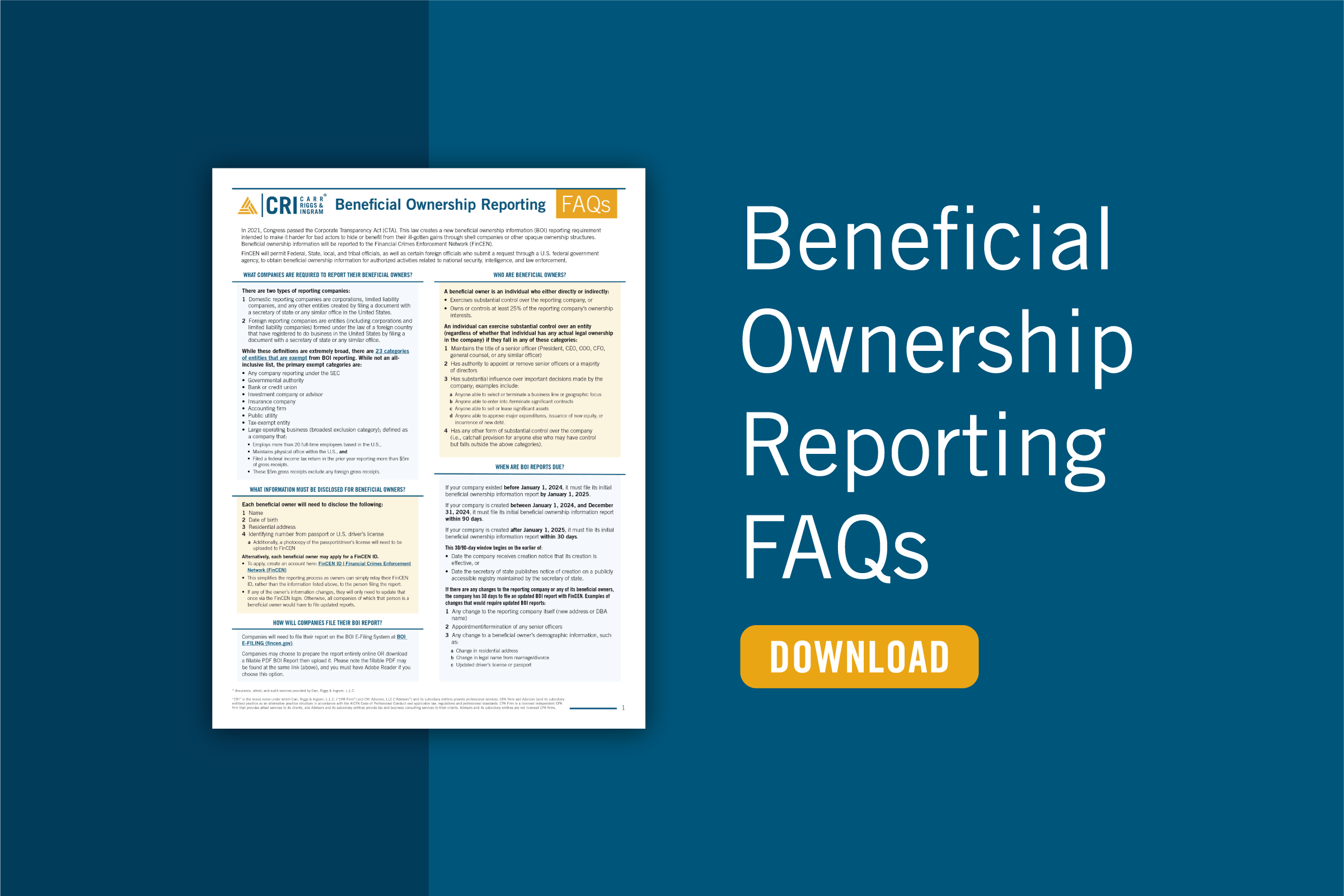Government Entities: Plan, Protect, Adapt, Overcome
Mar 24, 2020
As you look at your government entity today, it is likely much different than it was just a short time ago. The COVID-19 pandemic brought challenges and opportunities we have never faced before. How should you respond to the pending financial and operational challenges? Look no further than: Plan, Protect, Adapt, Overcome. These words outline steps you can take to meet the challenges you are facing as you make decisions for your government entity.
Plan
What can you do to plan for revenue disruptions, related cash flow delays, and general operations? How can you bridge these disruptions using planning and alternative funding? Outside-the-box thinking could generate funding and operational changes to ease the burdens caused by the coronavirus pandemic. In this time, it is important to balance available resources to maintain your government entity’s financial well-being while meeting your citizens’ needs.
Consider the following planning items:
- Monitor cash flow – anticipate sales tax (or any other tax) fluctuations. Obtain business license rolls and examine the nature of the largest businesses in your area to see how sales taxes might be affected based on industries or businesses that have closed and those that remain open. Consider categorizing those businesses by impact, and project any sales tax decreases or increases.
- Consider delaying non-essential expenditures for capital outlay and maintenance.
- Consider staffing for upcoming Federal awards and the related compliance requirements with maintaining and spending Federal Funds. Monitor Federal and State assistance and apply for any assistance timely.
- Consider cash increases from closed government facilities – fewer utilities, fewer janitorial services, fewer food services – save and monitor that cash for any local pass through deferrals or losses.
- Consider the distribution of supplies in case an area is inaccessible due to quarantine and move supplies to accessible locations for EMS, fire and police.
- Review any proposed utility billing and tax or license deferrals with legal counsel to ensure that they are adequately reviewed, documented, and do not violate any federal, state, or local statutes.
Protect
During any office disruptions and staffing shortages, maintain internal controls and safeguards over government resources to protect the financial health of your entity and prevents losses in a time when resources are scarce. Maintain and protect the flow of resources and supplies that will be needed in operations.
You will need to consider the following items to maintain controls and protect resources:
- Make certain that monthly reconciliations continue to be performed and reviewed – such as bank reconciliations, accounts payable reconciliation and reviews, and accounts receivable reconciliations.
- Be vigilant in fraud protection – watch for fraudulent vendors, duplicate invoices, make sure there’s a cross-check for approved or previously used vendors to ensure consistency based on history, watch for fraudulent invoices using an existing vendor name.
- Organize invoices and purchase orders for proper approval to help make the approval process more efficient. Consider an approval log if invoice volume increases as an extra control check.
- Reach out to vendors and make sure supply lines remain intact for essential needs – especially health care items for EMS, fire department, police department, any business type activities such as chemicals and test supplies for water departments, etc.
- Evaluate inventory to confirm adequate supplies are on hand for all city departments.
- Watch payroll processing for any Covid-19 tax relief for employees and make sure those items are adjusted in payroll.
- Maintain documentation for emergency purchases that will prove bid law exemption.
- Ensure that any tax billing or customer service deferrals are accounted for precisely for future billings and collections.
Adapt
Do you need to consider alternative sources of funding? Do you need to consider easing payment burdens for citizens or customers? Citizens and customers will be negatively affected by the COVID-19 pandemic, and any deferral or delay in payments may help their well-being.
Consider these items to adapt for funding and revenue deferrals:
- Obtain a bank line of credit in anticipation of cash needs related to tax disruptions or billing deferrals for taxpayer relief.
- Anticipate any billing deferrals for business type activities such as water, electricity, gas, sewer, etc. A bank line of credit could help to maintain cash flow in those areas if billings are deferred.
- Examine fund balance restrictions and for any committed fund balance for non-essential commitments, consider undoing the commitment and moving fund balance into unassigned to be used for general government purposes.
- For any investments on hand – evaluate the ability to access to those – CD’s converted into cash, Treasury bills, etc.
- If legally feasible, request a delay in pension and OPEB funding to save cash.
- Work with other governments to share resources – including equipment and personnel.
Overcome
Do you have a plan to overcome the crisis in front of you? Do you feel comfortable assimilating the information you have gathered to a workable plan?
Reach out to your CRI professional for help developing a strategy to identify and project the financial needs of your government entity on both a short-term and long-term basis, while also advising you through the tough decisions you face immediately. It's important to implement a plan to stabilize your government entity and continually update that plan as circumstances change in order to overcome this crisis and prepare for the future.






































































































































































































































































































































































































































































